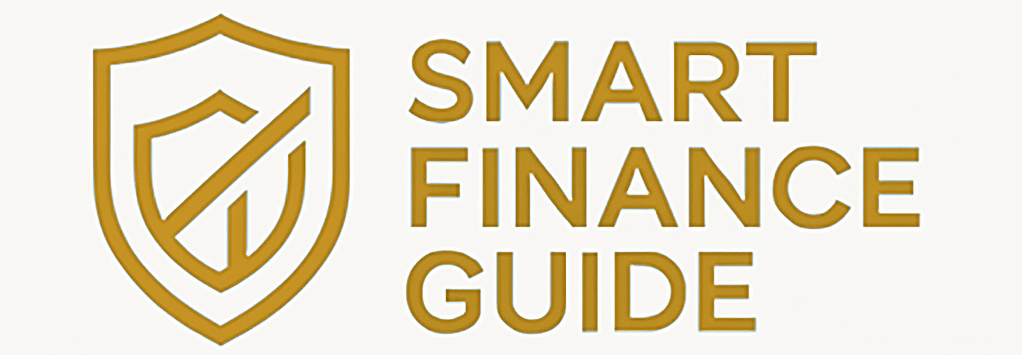Starting your own business is exciting — but it also comes with risks. Whether you run a freelance service, an online store, or a brick-and-mortar shop, business insurance is a must-have to protect everything you’ve worked so hard to build.
In this guide, you’ll learn why business insurance matters, the different types of coverage available, and how to find the right policies for your unique business.
What Is Business Insurance?
Business insurance is a combination of policies designed to shield your company from financial losses caused by unexpected events such as accidents, lawsuits, property damage, theft, cyberattacks, and more.
Think of it as a safety net. One major incident — like a customer slipping on your property or a fire damaging your inventory — could put your business at serious financial risk. Insurance helps prevent those events from becoming business-ending disasters.
Why Is Business Insurance So Important?
If you’re wondering whether business insurance is really necessary, consider these essential benefits:
1. Legal Compliance
Some types of business insurance are legally required depending on your location or industry. For example:
- Workers’ compensation is mandated in most states if you hire employees.
- Commercial auto insurance may be required for business vehicles.
- Some clients or contracts may demand proof of general liability coverage before working with you.
2. Financial Protection
A single lawsuit, natural disaster, or accident can cost tens of thousands of dollars — or more. Insurance helps absorb those shocks so your business doesn’t take the full hit.
3. Business Credibility
Having business insurance communicates professionalism. Clients, partners, and even employees feel more confident knowing you’re insured. It can even help you land bigger contracts or corporate clients.
4. Peace of Mind
When you know your assets and operations are protected, you can focus on what really matters: growing your business.
His most prominent mind: Disability Insurance: Why Even Healthy Workers Should Consider It.
Main Types of Business Insurance Coverage
Different businesses require different types of insurance. Here are the most common types of business insurance to consider:
1. General Liability Insurance
This is the foundation of most business policies. It covers:
- Bodily injury to third parties
- Property damage
- Medical payments
- Legal fees and settlements
Whether someone slips in your store or you accidentally damage a client’s property, this policy has your back.
2. Professional Liability Insurance (Errors & Omissions)
Ideal for service providers — consultants, designers, marketers, IT specialists, etc.
Covers:
- Claims of negligence
- Professional mistakes or bad advice
- Missed deadlines or breached contracts
If your expertise is your product, this type of business insurance is a must.
3. Business Property Insurance
This covers physical assets such as:
- Office or storefront
- Furniture and equipment
- Inventory
- Computers and tools
It protects against events like fire, theft, vandalism, or natural disasters (depending on your policy).
4. Business Owner’s Policy (BOP)
A BOP bundles general liability and property insurance together. It’s cost-effective and popular with small businesses and startups.
Benefits:
- One monthly premium
- Broad coverage at a lower rate
- Often customizable with add-ons (e.g., cyber coverage)
5. Workers’ Compensation Insurance
If an employee is injured on the job, workers’ comp covers:
- Medical bills
- Rehabilitation
- Lost wages
- Legal fees in case of lawsuits
Even if you only have one part-time employee, this insurance may be mandatory — and it protects both the worker and your business.

6. Commercial Auto Insurance
If your business owns or uses vehicles, your personal auto insurance won’t cover accidents during work tasks.
This policy protects:
- Vehicles owned by the business
- Employees driving for work
- Damage to vehicles or cargo
7. Cyber Liability Insurance
In the digital age, cyber threats are real — and expensive. If you collect customer data or sell online, consider this essential coverage.
It helps cover:
- Data breach response
- Legal liabilities
- System recovery costs
- Credit monitoring and fraud protection services
How to Choose the Right Business Insurance
There’s no one-size-fits-all policy — your coverage should reflect your operations. Ask yourself:
- Do I interact with clients or the public? → General liability is a must.
- Do I give advice or professional services? → You’ll need professional liability.
- Do I have employees? → You’ll likely need workers’ comp.
- Do I own equipment or rent a commercial space? → Property insurance is crucial.
- Do I store customer data or operate online? → Cyber liability is essential.
Here are some real-life examples:
- Freelancer or Consultant: Professional liability, general liability
- Online Retailer: Property insurance, product liability, cyber insurance
- Coffee Shop or Barbershop: General liability, property, workers’ comp
- Home Business Owner: General liability + rider on homeowners/renters insurance
How Much Does Business Insurance Cost?
Costs vary depending on:
- Industry and risk level
- Business size and revenue
- Location
- Policy types and coverage limits
Typical monthly premiums:
- General liability: $30–$80/month
- Professional liability: $40–$100/month
- BOP (bundled plan): $100–$200/month
- Cyber insurance: $50–$150/month
💡 Pro Tip: Always get quotes from at least 3 providers. Rates can vary significantly even with the same coverage.
Where to Buy Business Insurance
Many modern providers offer quick quotes and simple online applications. Some of the best-rated companies include:
- Next Insurance – Tailored for small businesses and freelancers
- Hiscox – Great for service professionals
- Thimble – Offers flexible, on-demand policies
- The Hartford – Known for strong small business support
- Progressive / Nationwide / State Farm – Full-service options with local agents
When comparing, look for:
- Financial strength (A-rated or higher)
- Customer reviews
- Claim process simplicity
- Industry-specific expertise
Tips to Save Money on Business Insurance
Want great protection without breaking the bank? Try these strategies:
- Bundle policies – A BOP can be cheaper than individual policies.
- Raise deductibles – Higher deductibles lower monthly premiums.
- Improve risk management – Install security systems, offer employee training, and keep a safe workspace.
- Review your policy annually – Your needs may evolve as your business grows.
- Shop around each year – Loyalty doesn’t always equal savings.
What Happens If You Don’t Have Business Insurance?
It might seem like you’re saving money now — but skipping business insurance could cost you far more in the long run.
Without insurance, you may have to pay:
- Legal fees out of pocket if you’re sued
- Thousands in repairs or replacements after a disaster
- Medical expenses if an employee is injured
- Lost income from halted operations
In extreme cases, it could mean closing your business entirely.
His most prominent mind: How to Choose Between a Traditional and Roth IRA.
Final Thoughts: Don’t Just Plan to Succeed — Protect Your Success
Every business — no matter how small — faces risks. The difference between a minor setback and a devastating blow often comes down to whether or not you’re insured.
Investing in the right business insurance is not just about compliance or contracts — it’s about stability, credibility, and peace of mind.
You’ve worked hard to build your business. Now take the step to protect it.
FAQ – What Is Business Insurance and Why Every Small Business Needs It.
Do I really need business insurance if I’m a freelancer or run a one-person operation?
Yes. Even solo entrepreneurs face risks — like a client lawsuit, a data breach, or accidental damage during a job. Business insurance protects your income, assets, and reputation. For freelancers, policies like general liability or professional liability (errors & omissions) are essential and often required by clients.
What’s the difference between general liability and professional liability insurance?
General liability covers physical risks, such as a client slipping at your office. Professional liability covers service-related risks, like giving bad advice, missing deadlines, or making costly mistakes. If you offer services or expertise, both may be necessary.
Is a Business Owner’s Policy (BOP) a good idea for small businesses?
Yes, especially if you want broad protection at a lower cost. A BOP bundles general liability and property insurance — two essential coverages — into a single policy. It’s ideal for storefronts, offices, or service-based businesses that want simplicity and savings.
What kind of insurance do I need for an online business or e-commerce store?
At a minimum, consider product liability (in case your product causes harm), cyber liability (for data breaches or hacks), and business property (for your inventory or equipment). Even if you run it from home, these risks are real — and not covered by homeowners insurance.
How can I get affordable coverage as a new or small business?
Compare quotes from small-business-focused insurers like Next Insurance, Hiscox, Thimble, or The Hartford. Start with basic coverage (like general liability), then expand as your business grows. Bundling policies or paying annually can also reduce costs.

